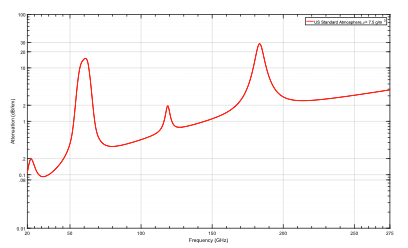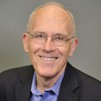On March 15, the FCC unanimously adopted rules to encourage research and development in the spectrum between 95 GHz and 3 THz, creating a new category of license called the Spectrum Horizons License. In addition to offering users experimental licenses, the FCC designated 21.2 GHz of spectrum as unlicensed, from 116 to 123, 174.8 to 182, 185 to 190 and 244 to 246 GHz.
According to the FCC, prior to this action, the U.S. had no rules permitting communication, whether licensed or unlicensed, in the spectrum above 95 GHz. Use was limited to industrial, scientific, medical (i.e., ISM), amateur radio and radio experiments. The agency noted these bands have propagation characteristics that will enable large numbers of unlicensed devices to operate, while limiting the possibility of interference to existing governmental and scientific uses, such as space research and atmospheric sensing.

Unlicensed Bands
For the unlicensed bands, the FCC’s order adopts similar rules as those governing the 57 to 71 GHz unlicensed band.
Devices may transmit a maximum EIRP of 40 dBm (average) and 43 dBm (peak). Outdoor point-to-point transmissions may have a higher maximum EIRP of 82 dBm (average) and 85 dBm (peak) if the transmitters use antennas with a minimum gain of 51 dBi. For antenna gain below 51 dB, the maximum power is reduced by 2 dB for each dB of antenna gain below 51 dBi.
The FCC elected not to impose output power limits referencing the power at the input to the antenna, so-called conducted power. The FCC agreed with a recommendation submitted by Bosch, saying “devices operating in frequency bands above 95 GHz will likely not have a detachable antenna or port that could be used for measuring conducted power, making such measurements difficult.”
Not surprisingly, the FCC stipulates that users operating in the unlicensed bands cannot interfere with other users in or adjacent to these bands, such as amateur radio, ISM, Earth observation satellites and radio astronomy.
Spectrum Horizons Experimental Licenses
Those applying for Spectrum Horizons Experimental Radio licenses may request operation in any frequency band between 95 GHz and 3 THz and in any geographic area. Before granting a license, the FCC will review each request to evaluate potential interference with other uses in the spectrum and geographic area. Any licenses will be granted for a single 10-year term — longer than any other experimental license — “to encourage entrepreneurs to invest in this largely untested spectrum, and yield more useful long-term information and data.” The FCC will require licensees to submit an interim report within five years, discussing the status and results of the experimental use.
Interestingly, the ruling allows licensees to market and sell devices directly to users. The FCC’s rationale is to “allow early adopters and other eager trial participants to help offset the costs of developing systems and equipment for use above 95 GHz.” However, any equipment sold must be retrieved or “made inoperable” at the end of the trial.
At the FCC’s meeting approving the new rules, chair Ajit Pai invited NYU professor Ted Rappaport to speak about the opportunities above 95 GHz. Read a summary of his remarks.
FCC chairman Ajit Pai commenting on the FCC's action

